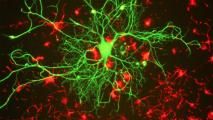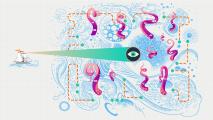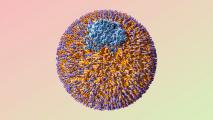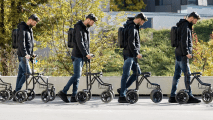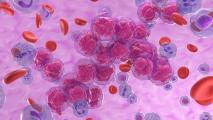
The Digital Frontier
Advancements in 20th century medicine reshaped society and made good health an expectation, not an exception. Now, 21st century breakthroughs may end disease, reverse aging, and restore sight and hearing — perhaps sooner than we think.
More
Adult-made neurons mature longer, have unique functions
Neuroscientists don’t know the degree to which adult brains generate new neurons, but adult-made neurons appear to have more “mature” functions.
Stocks demystified
Here’s how younger generations can work the markets (and avoid the hype).
4 dangers of artificial intelligence—and why they won’t end the world
AI doomsday fears are vague. This framework for the future of AI offers concrete solutions.
How to get started buying stocks
What to invest with just $10? “Young Millionaire” Andini meets with an investment analyst to learn the best way to break into the stock market.
How to terraform Mars, without nukes, on a budget
Terraforming Mars has been a dream for decades; here’s how we might get it started today.
The first 10 minutes of sleep can unlock your creative potential
According to prior research, the first ten minutes of sleep, called N1, can provide a creative boost when it comes to solving problems.
CRISPR tool slashes bad cholesterol by 56% in monkeys
Tune Therapeutics has successfully lowered the cholesterol levels of monkeys using a version of CRISPR that doesn’t permanently alter DNA.
Watch: Autonomous helicopter takes flight at sea
Airbus’ VSR700, an autonomous helicopter designed for naval use, has successfully completed test flights at sea.
Chronic pain can be objectively measured using brain signals
Even though pain is universal and we know it happens in the brain, we’ve never before had a way to objectively measure its intensity.
AI is already making “functional music” for major label artists
UMG has teamed up with an AI startup to turn its artists’ music into “soundscapes” designed to help listeners sleep, focus, and more.
New nasal spray aimed at reversing fentanyl overdoses is now approved
A new overdose-reversing spray that works fast but lasts longer has been approved by the FDA, and will be available by the fall at earliest.
Understanding just how big solar flares can get
Recasting the iconic Carrington Event as just one of many superstorms in Earth’s past, scientists reveal the potential for even more massive eruptions.
Fully self-driving cars are finally available on Uber
Uber has teamed up with robotaxi operator Waymo to make rides in fully autonomous cars available to its customers.
A massive moon telescope could solve the mystery of the “Cosmic Dark Ages”
NASA hopes a massive radio telescope on the moon will be able to reveal what was happening during the mysterious “Cosmic Dark Ages.”
Do we finally know what causes Alzheimer’s?
The first treatments proven to slow cognitive decline in Alzheimer’s are helping settle a decades-long debate about how the disease starts.
Here’s how growing plants on the Moon could benefit Earth
Making plants grow on the Moon could be instrumental in helping gardens to grow greener on Earth in the face of climate change.
Paralyzed man walks again using only his thoughts
A man with paralyzed legs is walking again thanks to a “digital bridge” between his brain and a spinal stimulator.
This “bridge” between chemo and cancer solves a big problem for treatment
To improve leukemia treatment, Australian researchers have created a bispecific antibody that connects chemo drugs to cancer cells.
Stanford study finds AI improves the performance of teachers and students
Stanford researchers have developed an AI that can provide useful feedback to teachers, helping them to increase student uptake.
For the first time, astronomers have detected a radio signal from the massive explosion of a dying white dwarf
Patience and persistence pays off in ways researchers never expected, allowing them to hear the dying whispers of a distant star.
Subscribe to the newsletter



